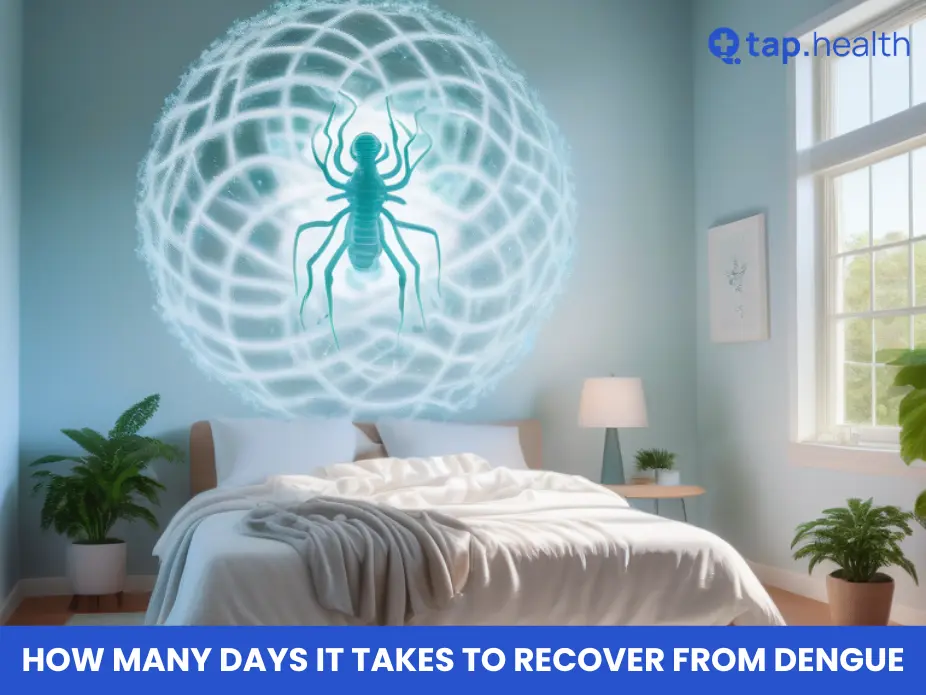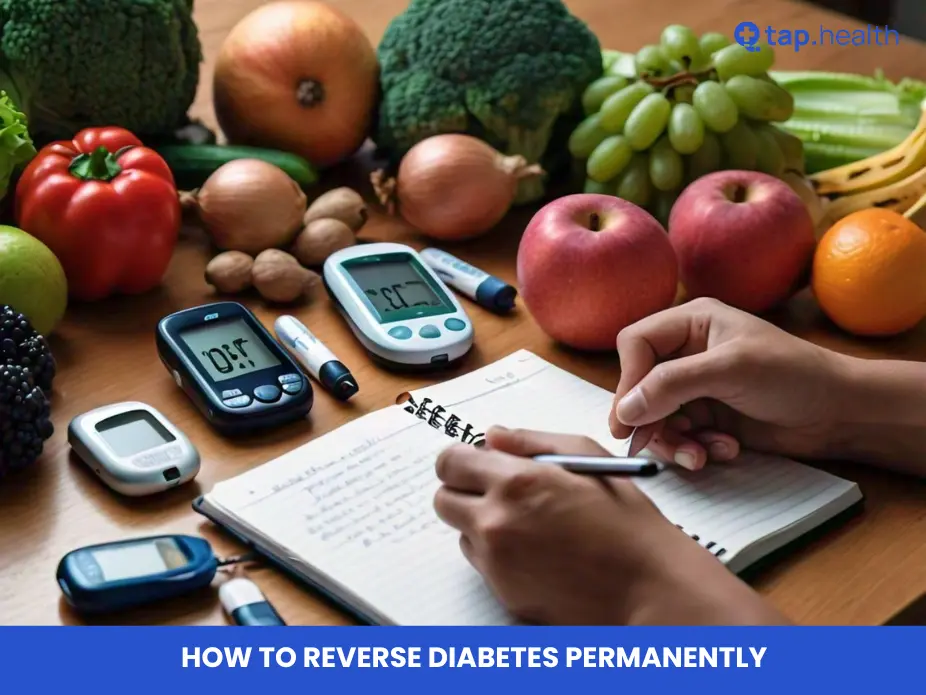Dengue fever is a widespread mosquito-borne viral illness that affects millions of people across the globe every year. It is particularly prevalent in tropical and subtropical regions where the climate is conducive to the breeding of mosquitoes. While many people recover from dengue fever with proper care, understanding the timeline of recovery and the steps involved is crucial. This blog will explore what dengue is, its types, symptoms, causes, the typical recovery time, signs of recovery, preventive measures, treatment options, and when to seek medical attention.
What is Dengue?
Dengue fever is an acute viral infection caused by the dengue virus, which is transmitted primarily through the bite of infected female Aedes mosquitoes, particularly Aedes aegypti. The virus belongs to the Flavivirus genus and has four distinct serotypes: DEN-1, DEN-2, DEN-3, and DEN-4. An infection with one serotype of the dengue virus does not confer immunity against the other serotypes, meaning a person can be infected up to four times in their lifetime.
Dengue fever can range from mild to severe. Severe cases can lead to life-threatening conditions such as dengue hemorrhagic fever (DHF) or dengue shock syndrome (DSS), which require immediate medical attention. For more information, visit the World Health Organization.
Types of Dengue
Dengue fever is classified into two primary types based on the severity of the disease:
Dengue Fever (DF):
This is the classic form of dengue and is generally self-limiting. It presents with high fever, severe headache, pain behind the eyes, joint and muscle pain, nausea, vomiting, rash, and mild bleeding manifestations, such as nose or gum bleeding.
Severe Dengue (Dengue Hemorrhagic Fever and Dengue Shock Syndrome):
Severe dengue is a more serious form of the disease and can be life-threatening. It involves plasma leakage, fluid accumulation, respiratory distress, severe bleeding, and organ impairment. Dengue hemorrhagic fever can progress to dengue shock syndrome, where the patient’s blood pressure drops dangerously low, leading to shock. Learn more about severe dengue on the Centers for Disease Control and Prevention website.
Symptoms of Dengue
The symptoms of dengue can vary widely and typically appear 4-10 days after being bitten by an infected mosquito. The most common symptoms include:
1. High Fever
Dengue fever typically begins with a sudden onset of high fever, often reaching up to 104°F (40°C). This fever can last for several days and is usually accompanied by other symptoms. The abrupt rise in temperature is one of the first signs of dengue infection.
2. Severe Headache
Patients often experience intense headaches, particularly behind the eyes. This pain can be debilitating and is a hallmark symptom of dengue fever, contributing significantly to the overall discomfort experienced by those infected.
3. Joint and Muscle Pain
Dengue is sometimes referred to as “breakbone fever” due to the severe joint and muscle pain it causes. This pain can affect the entire body and is often described as excruciating, making movement difficult and uncomfortable.
4. Nausea and Vomiting
Gastrointestinal symptoms such as nausea and vomiting are common in dengue fever. These symptoms can lead to dehydration, making it crucial for patients to maintain adequate fluid intake.
5. Skin Rash
A skin rash may develop a few days after the fever begins. This rash can spread across the body and is often itchy. It may appear as red spots or patches and is a common symptom in many dengue cases.
6. Fatigue
Extreme tiredness and weakness are prevalent in dengue fever. This fatigue can persist even after other symptoms have subsided, affecting the patient’s ability to perform daily activities and prolonging the recovery period.
7. Mild Bleeding
Some patients may experience mild bleeding symptoms, such as nosebleeds, gum bleeding, or easy bruising. These symptoms occur due to the impact of the virus on blood clotting mechanisms and should be monitored closely to prevent complications.
In some cases, symptoms can escalate to severe dengue, which may include intense abdominal pain, persistent vomiting, rapid breathing, bleeding gums, blood in vomit or stools, and extreme fatigue or restlessness. For a detailed list of symptoms, refer to the Mayo Clinic.
Causes of Dengue
Dengue fever is caused by the dengue virus, which is transmitted to humans through the bites of infected Aedes mosquitoes. The main vector is the Aedes aegypti mosquito, which is most active during the early morning and late afternoon.
The virus is transmitted in the following way:
- Mosquito Bite:
- A mosquito becomes infected when it bites a person who already has the dengue virus in their blood. After an incubation period of 8-12 days, the mosquito can transmit the virus to other people it bites.
- Human Transmission:
- Once bitten, the virus enters the human bloodstream and begins to replicate. It spreads throughout the body, causing symptoms to appear as the immune system fights the infection.
To understand more about the causes and transmission of dengue, you can visit the National Institutes of Health.
How Many Days It Takes to Recover from Dengue
The recovery period for dengue fever can vary depending on several factors, including the severity of the disease, the individual’s overall health, and the timely administration of supportive care. On average, the acute phase of dengue fever lasts about 2-7 days. During this period, the fever is usually high and accompanied by severe symptoms such as headaches, joint and muscle pain, and fatigue.
However, even after the fever subsides, many patients experience a prolonged period of recovery, often referred to as the convalescent phase. This phase can last for several weeks, during which the patient may still feel fatigued and weak. Full recovery can take anywhere from 2 to 4 weeks, and in some cases, even longer.
Here’s a breakdown of the recovery timeline:
- Acute Phase (2-7 Days):
- This is when the symptoms are most intense. Patients usually experience high fever, severe body aches, and other symptoms. Rest and hydration are crucial during this time.
- Convalescent Phase (1-2 Weeks):
- After the fever breaks, the patient enters the recovery phase. Fatigue and weakness are common, and patients should continue to rest and avoid strenuous activities.
- Full Recovery (Up to 4 Weeks):
- While most patients recover within 2 weeks, some may take up to 4 weeks to feel completely normal. It’s important to monitor any lingering symptoms and consult a doctor if they persist.
Signs of Recovery from Dengue
Recognizing the signs of recovery is important to ensure that the patient is on the right track. Some of the signs that indicate recovery from dengue include:
- Decrease in Fever: The first sign of recovery is often a reduction in fever, usually within a week of the onset of symptoms.
- Improved Appetite: As the patient begins to recover, their appetite should gradually improve.
- Reduction in Pain: Joint and muscle pain, as well as headaches, should start to decrease.
- Increased Energy Levels: Although fatigue may persist, the patient should begin to feel more energetic over time.
- Improved Mood: As physical symptoms improve, so should the patient’s overall mood and sense of well-being.
It’s essential to note that even after these signs appear, patients should continue to take it easy and avoid overexertion, as the body may still be in a fragile state.
Prevention of Dengue
Preventing dengue fever primarily involves avoiding mosquito bites and controlling the mosquito population. Some key preventive measures include:
1. Eliminate Mosquito Breeding Sites
Aedes mosquitoes breed in stagnant water, so it’s important to eliminate any standing water around your home. This includes emptying containers, cleaning gutters, and covering water storage containers.
2. Use Mosquito Repellents
Apply insect repellent to exposed skin, especially during the early morning and late afternoon when mosquitoes are most active. Repellents containing DEET, picaridin, or oil of lemon eucalyptus are effective.
3. Wear Protective Clothing
Wear long-sleeved shirts, long pants, socks, and shoes to reduce exposure to mosquito bites.
4. Use Mosquito Nets or Screens
Sleeping under mosquito nets or ensuring that windows and doors are fitted with screens can help keep mosquitoes out of your home.
5. Community Efforts
Participate in community programs to reduce mosquito populations, such as spraying insecticides and cleaning up public spaces.
For more prevention tips, you can check out the World Health Organization’s Dengue Prevention page.
Treatment of Dengue
There is no specific antiviral treatment for dengue fever. Treatment is mainly supportive and focuses on managing symptoms and preventing complications. Here’s what the treatment typically involves:
3. Pain Relief
Over-the-counter pain relievers like acetaminophen (paracetamol) can help reduce fever and alleviate pain. Avoid non-steroidal anti-inflammatory drugs (NSAIDs) like aspirin and ibuprofen, as they can increase the risk of bleeding.
4. Hospitalization
In severe cases, hospitalization may be necessary for intravenous fluids, blood transfusions, and close monitoring.
To learn more about dengue treatment, refer to the Mayo Clinic.
When to Seek Medical Attention
While most dengue cases can be managed at home with proper care, it’s important to seek medical attention if symptoms worsen or if any of the following signs appear:
1. Persistent Vomiting:
- If the patient is unable to keep fluids down, dehydration can quickly become a serious issue.
2.Severe Abdominal Pain:
- Intense pain in the abdomen can be a sign of severe dengue and requires immediate medical attention.
3.Bleeding:
- Bleeding gums, blood in vomit or stool, or easy bruising are warning signs that should not be ignored.
4.Difficulty Breathing:
- Respiratory distress or difficulty breathing is a medical emergency.
5.Confusion or Drowsiness:
- If the patient becomes disoriented, excessively sleepy, or unresponsive, seek emergency care immediately.
For guidance on when to seek medical attention, visit the Centers for Disease Control and Prevention.
FAQs on How Many Days It Takes to Recover from Dengue
1.Can dengue fever recur?
Yes, since there are four different serotypes of the dengue virus, a person can be infected up to four times. However, subsequent infections can be more severe.
2.Is there a vaccine for dengue?
Yes, there are vaccines available for dengue, but their use is typically limited to certain high-risk areas. It’s important to consult with a healthcare provider to determine if vaccination is appropriate.
3.What factors affect the recovery period from dengue?
The recovery period can be influenced by the patient’s age, overall health, immune response, and whether they received prompt and appropriate treatment.
r.



